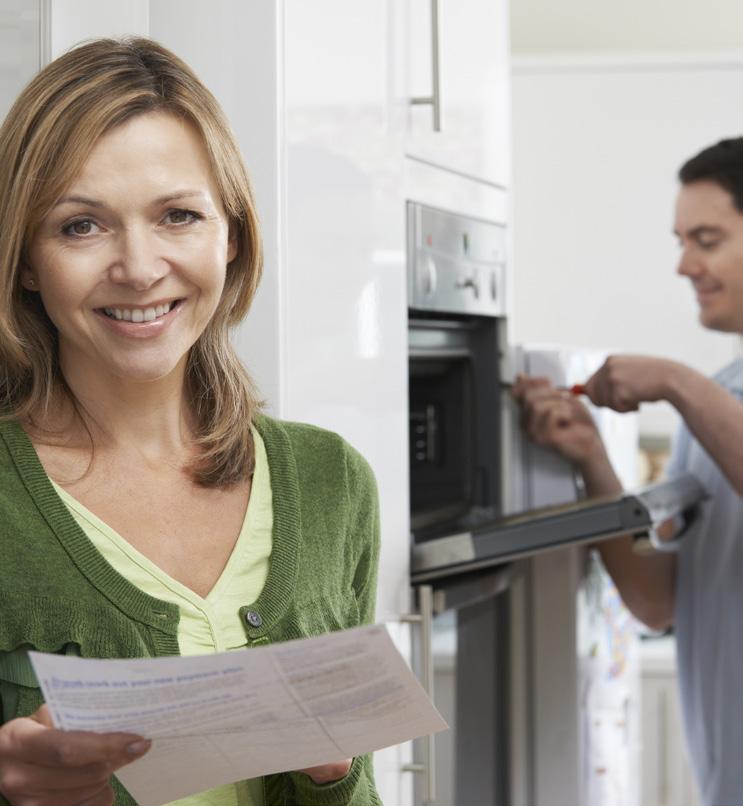
5 minute read
COVID-19. WHAT GOV.UK IS DOING TO HELP INSTALLERS
It perhaps comes as no surprise that the content of my article for this edition is entirely focussed on the government measures being implemented to address some of the financial difficulties suffered as a consequence of the Coronavirus pandemic.
These measures are changing on a daily basis with only very recent announcements for significant sectors such as the self-employed. Some announcements are still lacking detail and clarity. This article therefore tries to summarise the broad position on the main measures that may be of assistance to you.
Advertisement
Managing existing debt
Whilst not a government initiative, many finance companies and general lenders are offering payment deferrals for personal and commercial mortgages, business loans and finance products such as Hire Purchase agreements. As these obligations often form a significant part of individuals and companies outward cashflow, it is highly recommended that you contact your lenders directly to discuss your options.

The government has announced that VAT liabilities for all VAT registered UK businesses and individuals will be deferred for payments due between 20th March and 30th June 2020. At the moment it is assumed that this will apply to all businesses irrespective of size although further clarification may be forthcoming. The deferral will be to early 2021 and further clarification on that will be issued shortly. VAT returns must still be submitted on time. If you pay via BACS or cheque, you will simply not make the payment. If paying by the direct debit facility you must contact your bank to cancel that direct debit arrangement, otherwise payment will still be taken by HMR&C.

Useful Contacts
www.gov.uk/coronavirus - provides details of all the above measures and more 0800 0159 559 – HMR&C Time to Pay helpline for all businesses and individuals 0800 0241 222 – General HMR&C helpline
It is vitally important that all readers contact their accountants or HMR&C should they have any queries in relation to the above measures and before taking action. As indicated above, detail on these measures are changing daily and your advisors will be best placed to update you.

Self-assessment tax payments due by the end of July 2020 are being deferred until January 31st 2021. It is understood that this will apply to tax liabilities arising from self-employment but there is no indication that this applies to those with liabilities arising from investment income, rental income or other forms of income untaxed, or not fully taxed at source.
Rates

Businesses operating from commercial premises and for whom Small Business Rates Relief may apply, may be able to obtain grants from their local authority of up to £10,000.
Businesses in the leisure, hospitality or retail sector who are most impacted by the COVID-19 may be able to receive a full year’s payment holiday for rates and access grants up to £25,000. This is primarily aimed at businesses with commercial properties with a rateable value of between £15,000 and £51,000.
The above provisions will be administered by local authorities and further clarification on their application is expected. The government has effectively offered to indemnify banks for up to 80% of loans issued to businesses impacted by COVID-19. This measure is expected to free up additional lending by the banks and is available on loans up to £5m. Initial feedback on this facility is, however, not very positive. Businesses are still expected to present business plans to their bank as part of this facility.

Job Retention Scheme
The government will support employers by making payments to businesses to cover 80% of the wage costs of ‘furloughed’ workers up to £2,500 per employee per month. The payments will be backdated to 1st March 2020 and the scheme will currently operate for 3 months. The concept of a ‘furloughed’ worker is broadly somebody who would have otherwise been made redundant as a consequence of reduced demand for services or productivity. It is not presumed to be an alternative to sick pay where an individual is forced to self-isolate or may be unfortunately off sick due to infection. A furloughed worker should be advised (preferably in writing by their employer) that their status has changed. The furloughed worker should have absolutely no involvement in work from that point. It is only the employer that can make the decision in relation to the change of status. It is not yet clarified as to whether this scheme applies to owners where the owner is a salaried director although it would seem somewhat inequitable if it didn’t.
The employer may wish to enhance the 80% from HMR&C but that is optional. Given that the alternative may be redundancy it is expected that most employees and employers will reach a mutually satisfactory agreement on these matters. At the moment, HMR&C are still designing the online platform to facilitate claims from employers and this is unlikely to be ready until early April, with payments being processed later in that month.
Self Employment
The biggest recent announcement from the Chancellor is the package to assist self-employed workers largely overlooked by other measures save for the deferment of July tax bills.
The scheme will essentially be limited to the self-employed where profits (not turnover) are less that £50,000 per annum. Where there are mixed sources of income, self-employment must be at least 50% of taxable income. The amounts will be based on 80% of the average profits (not turnover) declared in self-assessment tax returns for the three years 16/17, 17/18 and 18/19. If self-employment is

Time to Pay
HMR&C are extending facility to all tax payers who wish to defer existing tax debts over a longer period. This facility has been in place since the last economic downturn. HMR&C will entertain proposals from tax payers to pay any taxes (corporation tax, VAT, PAYE) upon reasonable presentation of the facts of their current hardship. It is likely that written assertions to settle debt will be expected from HMR&C and they have advised that they will act as ‘lender’ of last resort rather than first resort.
more recently registered, the amount will be based on those returns submitted in that period.
The payments will be up to £2,500 per month for the next 3 months. Unfortunately, due to the complexity of this system, HMR&C do not envisage payments being made until June at the earliest.
There is currently no facility to claim on this scheme at the moment and it is expected that HMR&C will write to those self employed tax payers who are entitled to a claim under the relevant criteria, and provide them with online registration details to make the claim.










